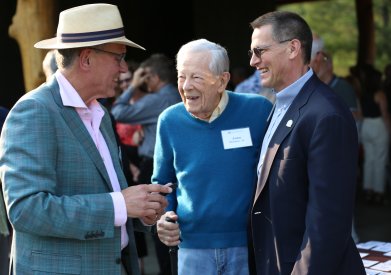Choosing Wisely: What We Learned and Carry Forward

October 20, 2021
In 2012 the ABIM Foundation launched its Choosing Wisely campaign to encourage clinicians and patients to engage in conversations aimed at reducing unnecessary medical tests, treatments and procedures. Nine years later the campaign continues to resonate across health care. In August 2021 “The Impact of Choosing Wisely Interventions on Low-Value Medical Services: A Systematic Review” was published in The Milbank Quarterly, showing that Choosing Wisely recommendations are successfully being used by health systems to reduce the use of low-value medical services.
Researchers Betsy Q. Cliff, Anton L. V. Avanceña, Ricahrd A. Hirth and Shoo-Yih Daniel Lee examined 131 published articles on Choosing Wisely’s impact between 2012 and June 2019. They found that active interventions (65%) were more likely to generate reductions in overuse than merely disseminating Choosing Wisely recommendations (13%). Among active interventions, those with multiple components (77%) were more successful than those with one component (47%).
What began as an attempt to prompt a national conversation about overuse in health care now includes more than 80 medical specialty organizations in the United States, and more than twenty countries have since adopted similar campaigns. And now, using much of what we’ve learned from Choosing Wisely, the ABIM Foundation’s focus has turned to trust.
While the word “trust” is absent in the study, its underlying significance is more than present. Trust-building conversations and relationships between clinicians and patients are at the core of Choosing Wisely and almost all of the recommendations refer to at least one dimension of trust. The initiative empowers patients with the information they need to understand when medical services may not be necessary, and the clinician and health system build trust by this communication, demonstrating that they care for their patients and are concerned about the cost of services borne by patients. Communication, care and cost are three key behaviors that drive trust. The other “C’s” are competency and comfort (belonging and equitable treatment), and all five behaviors are used to guide the Foundation’s Building Trust initiative.
The lessons learned from Choosing Wisely not only taught us methods to reduce overuse, but also taught us about the key behaviors needed to build trust – one being a simple, well-informed conversation between clinician and patient within an already established relationship.




